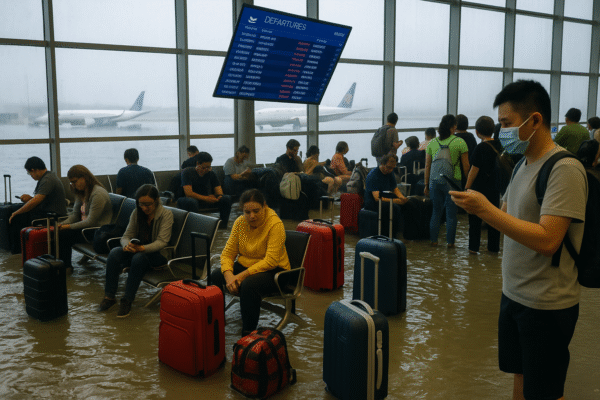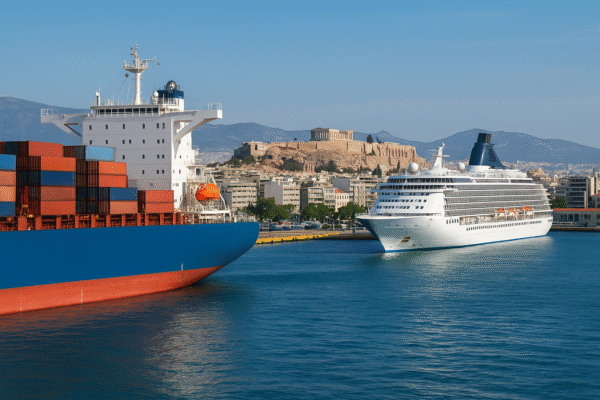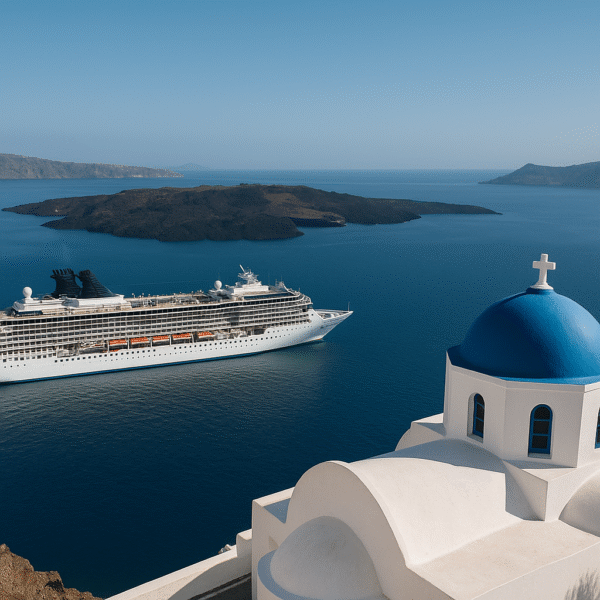Greece, long celebrated for its ancient heritage and stunning island landscapes, is now earning recognition for another powerful legacy—its unparalleled maritime strength. As of 2025, Greece controls a remarkable 20% of the world’s shipping capacity and over 60% of all European Union-flagged tonnage. This expansion—marked by a 42% increase in fleet size since 2015—is a triumph not only for trade but for Greece’s tourism, economy, and environmental agenda.
According to the Union of Greek Shipowners (UGS), the Greek-controlled fleet now includes 5,691 vessels, making it the largest maritime nation globally by capacity. This strategic dominance is helping to elevate Greece’s position not just as a shipping leader, but as a central hub for international tourism and commerce.
Driving Economic Resilience and Tourism Growth
Shipping is one of Greece’s most critical economic drivers. The sector contributes between 7% and 8% of national GDP, generating over €150 billion in foreign revenue in the past decade. These inflows fund public services, stabilize the country’s economy, and support vital industries, including real estate, infrastructure, and especially tourism.
Greece’s bustling ports—Piraeus, Thessaloniki, Heraklion, and the island hubs of Mykonos and Santorini—not only handle cargo traffic but serve as entry points for millions of cruise passengers annually. The synergy between shipping and tourism is evident: cruise ships, yachting services, and ferry lines are expanding alongside freight shipping, making maritime transport the backbone of Greece’s travel infrastructure.
Creating Maritime and Tourism Jobs
With over 160,000 direct and indirect jobs, the maritime sector is also one of Greece’s most dependable employers. Seafarers, port operators, marine engineers, and hospitality professionals working in cruise and ferry services form the foundation of Greece’s maritime employment ecosystem. Many of these jobs are concentrated in coastal cities and on tourist islands, creating robust employment links between shipping and tourism.
Vocational schools and maritime academies in Athens, Chios, and the Dodecanese Islands continue to train the next generation of ship officers, mechanics, and tour managers, ensuring that Greece remains competitive in both trade and tourism.
Green Shipping and Sustainable Tourism on the Horizon
Greek shipowners are leading efforts to reduce the sector’s environmental footprint. Billions are being invested in LNG-powered ships, methanol-ready vessels, hybrid propulsion systems, and emission-tracking digital platforms. According to the International Maritime Organization (IMO), these steps are vital to align with global decarbonization goals.
As of 2025, new shipbuilding orders from Greek owners have surged to 56.2 million dwt, up from 14.4 million in 2021. Many of these vessels will support cruise operations and sustainable maritime tourism across the Aegean and Mediterranean seas.
Tourism-dependent regions like the Cyclades, Crete, and the Ionian Islands stand to benefit from greener ships that minimize underwater noise, reduce fuel consumption, and operate efficiently near protected marine environments.
Strategic Global Positioning
Greece’s geographical location at the nexus of Europe, Asia, and Africa has always given it a unique maritime advantage. Its strategic ports—particularly Piraeus, now among Europe’s busiest—are gateways for trade and tourism alike. The port’s development under Chinese investment through COSCO Shipping has turned it into a logistics giant while also serving as a major cruise embarkation point.
In parallel, Greece’s Blue Growth Strategy, backed by the European Commission, is investing in marine research, ecotourism, and sustainable fisheries—initiatives that balance economic development with environmental protection.
A Vision for the Future of Maritime Tourism
Greece is blending its deep-rooted seafaring tradition with modern innovation. As it integrates digitalization, automation, and AI in maritime logistics, the country is preparing for a new era of smart tourism and connected shipping. Tourist itineraries involving luxury yachts, island-hopping ferries, and eco-friendly cruises will benefit from the broader technological advancements emerging from the freight sector.
With the shipping and tourism sectors increasingly interwoven, Greece is setting the global benchmark for coastal sustainability, economic resilience, and international leadership.
Final Thought
Greece’s booming maritime industry is not just a story of tonnage and trade—it’s a story of national revival, strategic foresight, and the seamless integration of shipping with tourism. From the shipyards of Piraeus to the pristine bays of the Cyclades, Greece is not just sailing ahead—it’s charting a smarter, greener, and more prosperous future for the world to follow.
For more travel news like this, keep reading Global Travel Wire

















